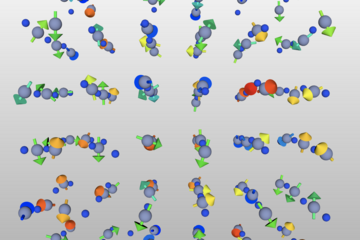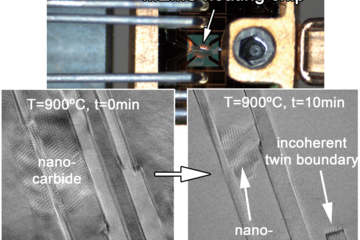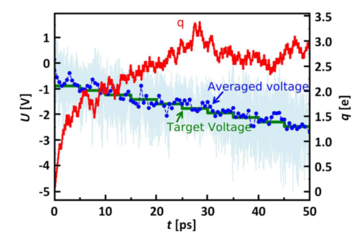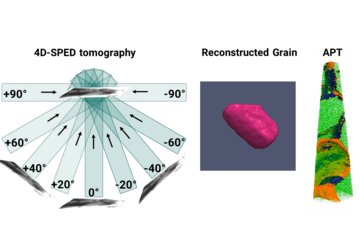All genres
101.
Talk
Insights into corrosion mechanisms from ab initio calculations. BASF “Corrosion Forum", Ludwigshafen, Germany (2018)
102.
Talk
Atomistic insights into surface stability and reactivity at solid/liquid interfaces from first principles calculations. Technical University Vienna, Vienna, Austria (2018)
103.
Talk
Selective stabilization of polar oxide surfaces in electrochemical environment. Workshop: The Electrode Potential in Electrochemistry - A Challenge for Electronic Structure Theory Calculations, Schloß Reisensburg, Günzburg, Germany (2017)
104.
Talk
Free energy sampling for electrochemical systems. Workshop II: Stochastic Sampling and Accelerated Time Dynamics on Multidimensional Surfaces, IPAM, UCLA, Los Angeles, CA, USA (2017)
105.
Talk
Ab-initio modelling of electrochemical processes: Challenges and insights. Workshop: Fundamental Electrochemistry: Theory Meets Experiment, Leiden, The Netherlands (2017)
106.
Talk
A molecular dynamics study of the Mg(0001)/H2O interface using empirical potentials. IMPRS-SURMAT Annual Retreat 2017, Meschede, Germany (2017)
107.
Talk
From weakened chemical bonds to materials breakdown: An ab initio perspective. DPG 2017, Dresden, Germany (2017)
108.
Talk
From semiconductor defect chemistry to electrochemistry: Insight into corrosion mechanisms from ab initio concepts. 57 Sanibel Symposium, St. Simon Island, GA, USA (2017)
109.
Talk
Ab initio description of oxides in an electrochemical environment. TMS 2017, San Diego, CA, USA (2017)
110.
Talk
From semiconductor defect chemistry to electrochemistry: Gaining new insights from computational physics tools. ICCP10 Conference , Macao, China (2017)
111.
Talk
Formation and dissolution of protective oxide layers in a wet electrochemical environment. MMM 2016 Conference, Dijon, France (2016)
112.
Talk
Insights into corrosion mechanisms from ab initio concepts. Corrosion - Aqueous (GRS), New London, NH, USA (2016)
113.
Talk
Elementary reaction steps in electrocatalysis: Theory meets experiment. Workshop 2016 der DFG-Forschergruppe 1376 , Reisensburg, Günzburg, Germany (2016)
114.
Talk
Oxide stability and defect chemistry in an electrochemical environment: an ab initio perspective. Workshop 2016 der DFG-Forschergruppe 1376 “Elementary reaction steps in electrocatalysis: Theory meets experiment“, Reisensburg, Günzburg, Germany (2016)
115.
Talk
Automated calculations for charged point defects in MgO and α-Fe2O3. DPG-Frühjahrstagung 2016, Regensburg, Germany (2016)
116.
Talk
Ab initio Determination of Formation Energies and Charge Transfer Levels of Charged Ions in Water. APS 2016, Baltimore, MD, USA (2016)
117.
Talk
Formation Energy of Ions in Water using ab-initio Molecular Dynamics. DPG Frühjahrstagung 2016, Regensburg, Germany (2016)
118.
Talk
Electrochemistry from the perspective of semiconductor defect chemistry: New tools and insights. Psi-k Conference, San Sebastian, Spain (2015)
119.
Talk
Formation Energy of Halide ions (Cl/Br/I) in water from ab-initio Molecular Dyna. Psi-k 2015 Conference, San Sebastián, Spain (2015)
120.
Talk
Thermodynamic stability of bulk oxides and their defects in an electrochemical environment. 5th Sino-German Symposium, Changchun, China (2015)











